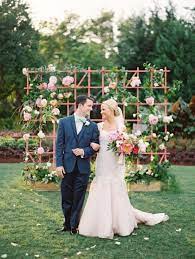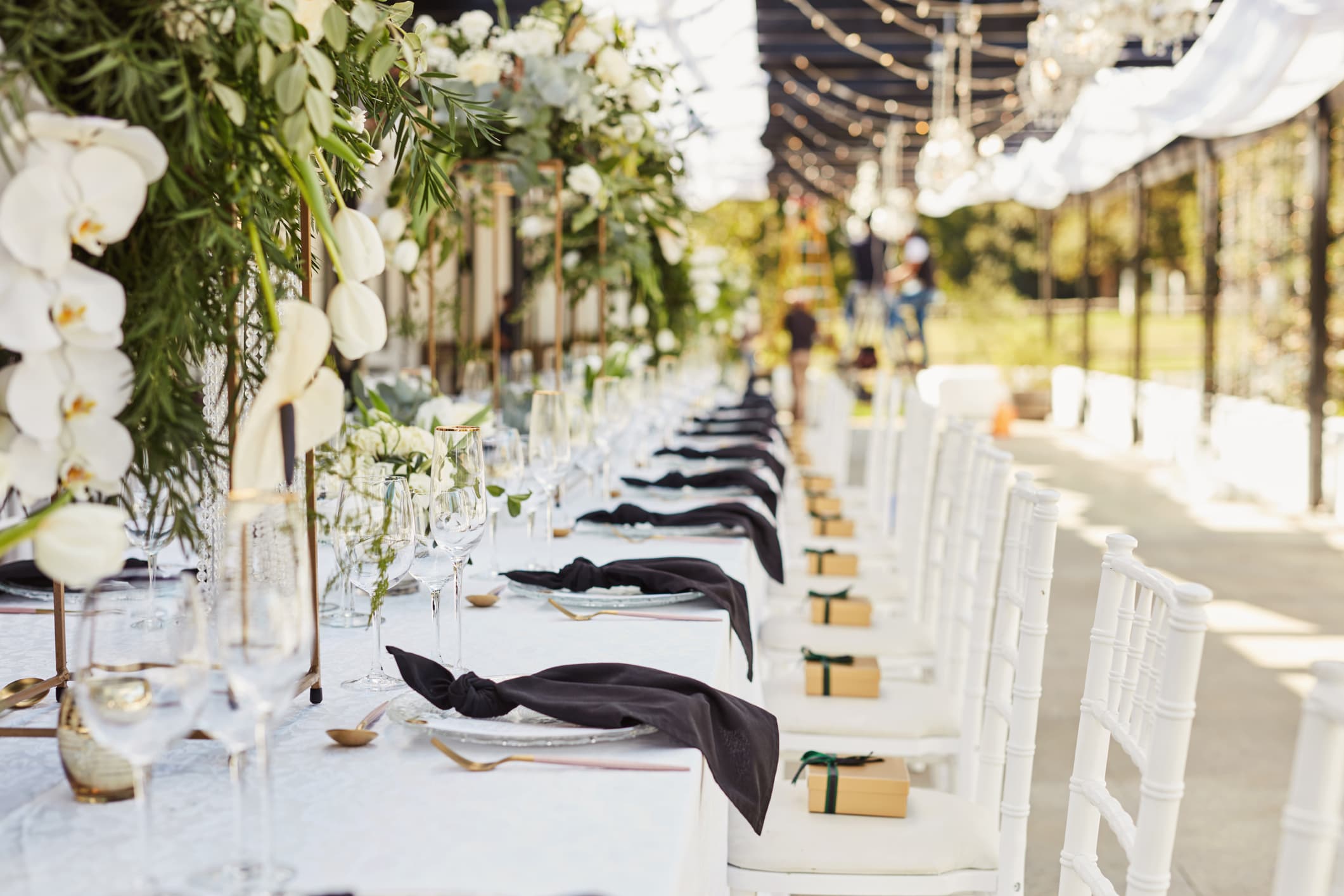Hello!
 Planning a wedding is a significant financial undertaking, but with careful planning and budgeting, you’ll have a beautiful and memorable event without breaking the bank.
Planning a wedding is a significant financial undertaking, but with careful planning and budgeting, you’ll have a beautiful and memorable event without breaking the bank.
Here are seven financial tips to help you plan your wedding on a budget and make the most of your money.
Top 7 Financial Tips For Planning Your Wedding
1. Make a Budget
Setting a budget is an essential step in planning your wedding. It helps you determine how much you can afford to spend on your big day and ensures that you allocate your funds wisely. Without a budget, it’s easy to overspend and potentially go into debt.
 To set a budget:
To set a budget:
- Consider your financial situation and determine how much you can realistically afford to spend on your wedding.
- Once you have a rough idea of your budget, create a list of all the expenses you will need to cover for your wedding. This should include everything from the venue and catering to the attire, flowers, and favors.
- Assign a dollar amount to each item on your list and adjust as needed to fit within your budget.
Feel free to cut costs where you can and consider alternative options, such as a less expensive venue or a smaller guest list, to help stay within your budget. By setting a budget and sticking to it, you can ensure that your wedding is a memorable and financially responsible event.
2. Save Early
 Starting to save for your wedding early on can be a smart financial move. This will give you more time to set aside money and build up your savings, which can help reduce the burden of paying for everything at once.
Starting to save for your wedding early on can be a smart financial move. This will give you more time to set aside money and build up your savings, which can help reduce the burden of paying for everything at once.
One way to start saving early is to open a dedicated wedding savings account. This will allow you to set aside money for your wedding expenses and keep it separate from your everyday funds.
By saving early, you can help ensure you have the funds you need for your wedding and reduce the stress of paying for everything at the last minute.
3. Negotiate With Vendors
Negotiating with vendors is a smart way to save money on wedding expenses. Many vendors are willing to negotiate their prices, especially if you are booking multiple services with them or if you are willing to book during an off-peak season.
 Negotiate with vendors and get quotes from several companies or individuals. This will give you a baseline for comparison and allow you to see where you might be able to save money.
Negotiate with vendors and get quotes from several companies or individuals. This will give you a baseline for comparison and allow you to see where you might be able to save money.
Once you have a few quotes, consider reaching out to the vendors you are most interested in and see if they are willing to negotiate their prices.
When negotiating, be sure to be respectful and polite. It’s important to remember that vendors are running a business and need to make a profit, but they may be willing to compromise if it means securing your business.
By negotiating with vendors, you can save substantial money on your wedding expenses and stretch your budget further.
4. Use Your Skills And Talents To DIY
 Using your skills and talents to DIY (do it yourself) can be a great way to save money on your wedding and add a personal touch to your big day. While DIY can be a lot of work, it can also be a fun and rewarding experience.
Using your skills and talents to DIY (do it yourself) can be a great way to save money on your wedding and add a personal touch to your big day. While DIY can be a lot of work, it can also be a fun and rewarding experience.
To get started with DIY, consider what tasks you feel comfortable taking on and what skills and resources you have available. Some ideas for DIY wedding projects might include making invitations, creating centerpieces or other decorations, or even baking your wedding cake, or even decorating your wedding hashtags couples to make your wedding more trendy and modern.
One of the benefits of DIY is that it allows you to put your personal touch on your wedding. You can use your creativity and personal style to create unique and memorable elements for your big day. Just be sure to plan and start your projects in advance to ensure everything is completed on time.
5. Go For A Budget Friendly Ring
Choosing a budget-friendly ring is an important consideration when planning your wedding. The cost of wedding rings can vary greatly, with some rings costing thousands of dollars. If you are on a tight budget, it’s important to be mindful of your ring expenses to ensure that you don’t overspend.
6. Don’t Forget About Hidden Costs
When planning your wedding, it’s important to remember that there may be hidden costs that you haven’t accounted for. These expenses are not immediately obvious and can add up quickly if you aren’t careful.
 Some common hidden wedding costs to be aware of include the following:
Some common hidden wedding costs to be aware of include the following:
- Gratuities
- Taxes
- Extra rentals
- Extra decor
- Travel and accommodation
7. Have A Small Wedding
A small wedding can be a great way to save money and create an intimate and personal celebration. Small weddings are typically more budget-friendly than larger events, requiring fewer guests, a smaller venue, and less food and drink.
 One of the benefits of a small wedding is that it allows you to focus on the things most important to you.
One of the benefits of a small wedding is that it allows you to focus on the things most important to you.
You can choose a venue that is meaningful to you, such as a favorite restaurant or a beautiful outdoor location, and spend more on the things that matter most to you, whether the music, the flowers, or the photographer.
A small wedding also allows you to spend more time with your guests and create a more personal and intimate atmosphere.
You can take the time to chat with each of your guests and ensure that everyone feels welcome and included.
Also read:
- Your Guide To Online Appointment Software
- Difference Between Instagram Delete vs Deactivate
- How will be the Future of Learning Language?
Conclusion
 Following these financial tips for planning your wedding can save money and ensure that your big day is memorable and financially responsible. From setting a budget and shopping around to DIY and finding budget-friendly alternatives, these tips can help you make the most of your money and have a beautiful and meaningful wedding.
Following these financial tips for planning your wedding can save money and ensure that your big day is memorable and financially responsible. From setting a budget and shopping around to DIY and finding budget-friendly alternatives, these tips can help you make the most of your money and have a beautiful and meaningful wedding.
Thank you!
Join us on social media!
See you!






